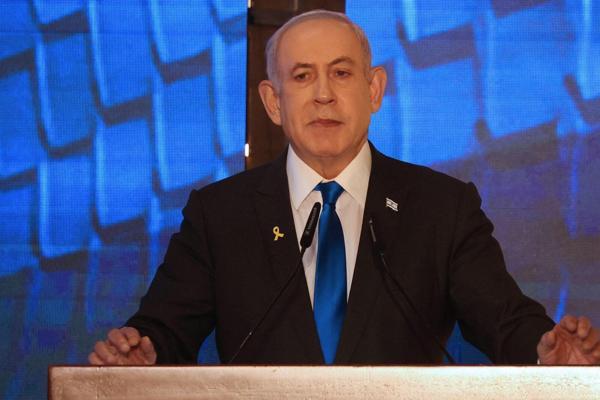Netanyahu under fire over post-war plan for Gaza
JERUSALEM


Israeli Prime Minister Benjamin Netanyahu faces increasing pressure from critics at home and allies abroad, especially the United States, to present a plan for governance, security and rebuilding of the war-torn Gaza Strip.
For the first time, late on May 15, Israeli Defense Minister Yoav Gallant publicly spoke out against the policy being led by Netanyahu.
Gallant said that he was opposed to Israeli military control or taking responsibility for the governance of the Gaza Strip after the ongoing war with Hamas.
"Since October, I have been raising this issue consistently in the cabinet, and have received no response," Gallant said in a televised statement.
"I must reiterate, I will not agree to the establishment of Israeli military rule in Gaza. Israel must not establish civilian rule in Gaza."
"I call on Prime Minister Benjamin Netanyahu to make a decision and declare that Israel will not establish civilian control over the Gaza Strip," Gallant said, calling for a "governing alternative to Hamas" immediately.
Gallant said the current military action in Gaza needed to be followed by political action.
"The day after Hamas will only be achieved with Palestinian entities taking control of Gaza, accompanied by international actors, establishing a governing alternative to Hamas' rule," he said.
Responding to the minister’s remarks, Netanyahu fended off criticism that he is not planning for a postwar reality in the Gaza Strip, saying it was impossible to prepare for any scenario in the embattled Palestinian enclave until Hamas is defeated.
"Until it is clear that Hamas does not militarily control Gaza, no entity will be willing to take civilian management of Gaza for fear of its well-being," reads a statement from Netanyahu's office.
"The first condition for preparing the ground for another entity is to destroy Hamas, and to do so without making excuses," he said in the statement posted on his Telegram channel.
Last week, the U.S. Secretary of State Antony Blinken also criticized Netanyahu, saying that Israel needs a concrete and clear plan for future of Gaza.
Meanwhile, on May 15, the Wall Street Journal reported that Netanyahu rejected U.S. calls for a post-war plan in the war-torn Palestinian enclave.
“For days, senior Biden administration officials have pressured Israel to plan for postwar Gaza as the long-anticipated Rafah offensive gets under way. Israeli Prime Minister Benjamin Netanyahu finally delivered his response: Not so fast,” the daily said.
Egypt, the United Arab Emirates and Morocco are also reportedly considering a U.S. proposal to provide troops for an international peacekeeping force to secure Gaza and prevent Hamas from regaining power there after the war ends.
However, the three countries want the U.S. to formally recognize a Palestinian state before such a force is created, according to a May 15 report by the Financial Times.
Making a statement on the debate, Hamas political bureau chief Ismail Haniyeh said the group will be involved in deciding post-war rule in Gaza along with other Palestinian factions.
"We say that the Hamas movement is here to stay ... and it will be the movement and all national [Palestinian] factions who will decide the post-war rule in Gaza," Haniyeh said in a televised address.
